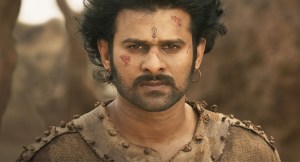Total Recall: Roman Polanski’s Best Movies
We count down the best-reviewed work of the Ghost Writer director.

For more than 40 years, on screen and off, no one has been able to unnerve audiences with quite as much panache as Roman Polanski — or rack up as many critical raves in the process. The esteemed director has certainly released a few poorly received films (see 1986’s Pirates — or, better yet, don’t), but even his worst reviews pale in comparison with the personal tragedies and legal problems that have overshadowed his career for the last several decades — most notably the 1969 murder of his wife Sharon Tate and the 1977 sexual assault case that sent Polanski fleeing to Europe in order to escape the American legal system. Still, it’s hard to overstate Polanski’s significance in the film world, and with his latest effort, The Ghost Writer, currently earning appreciative nods from top scribes, we thought now would be a great time to survey the Polanski filmography Total Recall style. What are his ten best-reviewed films? Read on to find out!
10. Tess
Whatever else you might say about Roman Polanski, he isn’t lacking for chutzpah: For his first film after fleeing the States to avoid imprisonment for the sexual assault of a minor, Polanski helmed an adaptation of Thomas Hardy’s Tess of the d’Urbervilles that starred his teenage girlfriend and was released with the tagline “She was born into a world where they called it seduction, not rape. What she did would shatter that world forever.” Dedicated to Polanski’s slain wife and starring Natassja Kinski as the titular Victorian peasant, Tess was nominated for six Academy Awards (and won three) despite taking over three hours to tell an unforgivingly bleak tale of desperate poverty, loveless marriage, and murder. Wrote Dave Kehr of the Chicago Reader, “Seen in the context of Roman Polanski’s career it becomes something rich and strange, shaded into terror by the naturalistic absurdism that is the basis of Polanski’s style.”
9. Macbeth
Reeling after the horrific 1969 murder of his wife Sharon Tate, Polanski turned to Shakespeare for his next project. But Polanski’s Macbeth is, as you might expect, a decidedly non-traditional adaptation, in ways both expected (passages from the play cut for time, unflinchingly realistic violence) and not (Polanski turned the characters’ soliloquies into internal monologues, and famously decided Lady Macbeth’s sleepwalking sequence should be performed in the nude). Polanski also changed the ending of the play, adding a final scene that suggests Macbeth‘s nightmarish cycle of betrayal and bloodshed is about to begin again. Heresy? Some viewers thought so, but it’s certainly a fitting denoument for the director’s unapologetically cynical interpretation. Met with a certain amount of consternation when it was released, Polanski’s Macbeth has aged relatively well; in the words of the Apollo Guide’s Patrick Byrne, it “forces Shakespeare into the modern terrain of sickly spiralling sensibilities, with blood, lust, and madness at the forefront.”
8. Death and the Maiden
Rich with ambiguity, dark secrets, the looming threat of violence, and a hint of domestic dischord, Ariel Dorfman’s play Death and the Maiden couldn’t have been better suited for the Polanski treatment if Polanski had written it himself. Starring Sigourney Weaver as Paulina Escobar, a woman whose haunting memories of imprisonment and rape are reawakened when her husband (Stuart Wilson) brings home a man she believes tortured her (Ben Kingsley), Maiden united one of Polanski’s strongest casts with some of his most familiar themes. Though it wasn’t one of his biggest financial successes, it signaled a critical return to form after the comparative disappointment of Bitter Moon; Marc Savlov of the Austin Chronicle was one of the writers who offered praise, calling Death and the Maiden “a streamlined razor-ride of a movie: taut, riveting, and a psychological horror show that will leave nail-marks in your palms for days afterwards.”
7. Cul-de-Sac
The original poster for Cul-de-Sac featured a crude sketch prominently depicting a broken arm, a gun, a heart surrounded by darkness, and a shapely woman’s silhouette, proving that even this early in Polanski’s career, it was possible to distill the most crucial elements of his work. The tale of two gangsters (played by Lionel Stander and Jack MacGrowran) who invade the home of a married couple (Donald Pleasance and Françoise Dorléac) while on the lam after a robbery gone wrong, Cul-de-Sac represented something of a light departure for Polanski after the grim horror of 1965’s Repulsion, while still retaining his trademark fascination with the boundaries between violence, sex, and control. “If the subject matter is bleak and bitterly serious,” noted Time Out’s Geoff Andrew, “the tone throughout is darkly comic, while the precise imagery effortlessly conveys the tension, the claustrophobia, and the madness of the situation.”
6. The Tenant
For the last installment in his loosely constructed “Apartment Trilogy,” Polanski directed Polanski: He stars in 1976’s The Tenant as the doomed Trelkovsky, a man whose unfortunate choice of new dwelling triggers a spiraling descent into madness. Or does it? Laden thick with symbolism and ambiguity, The Tenant unloads 125 minutes of black comedy and slowly dawning terror, then forces the viewer to figure out what it all means. Perhaps unsurprisingly, it didn’t resonate with audiences the same way Rosemary’s Baby had, nor did it land with the sort of cultural impact enjoyed by Repulsion; still, it’s a unique slice of psychological horror from a master of the genre. As Steve Biodrowski wrote for Cinefantastique, “Although overshadowed by director Roman Polanski’s more famous horror efforts…The Tenant is in many ways superior — a haunting, mesmerizing tale of a man’s loss of identity and descent into madness.”
5. The Pianist
1999’s The Ninth Gate brought in the worst reviews Polanski had suffered since 1986’s much-maligned Pirates, but he rebounded in a major way with The Pianist. Adapted from Wladyslaw Szpilman’s autobiography, the film follows the painful journey of a Polish Jewish pianist (Adrien Brody) who, in spite of overwhelming odds and enormous hardships, clings to life during the Nazi occupation of World War II. Though the overwhelmingly positive response to The Pianist was partly overshadowed by Polanski’s ongoing legal problems, it was ultimately one of the biggest critical and commercial successes of his career, and went on to win Academy Awards for Best Actor, Best Director, and Adapted Screenplay. In the words of the Nation’s Stuart Klawans, “The Pianist is a serious movie brought out in a tabloid-besotted time, a prestige picture that invigorates, a study of character and history that knows irony to be a part of life and not the purpose of art.”
4. Rosemary’s Baby
Just a few years after making the jump from the Polish film industry to Hollywood, Polanski was selected by Paramount production chief Robert Evans to helm the studio’s adaptation of the Ira Levin novel Rosemary’s Baby. The rest, as they say, is history. Though Polanski was still fairly green — it’s widely believed his screenplay ended up being extremely faithful to the book simply because he didn’t know he had the authority to take liberties with the source material — he ended up delivering one of the most enduringly successful horror movies ever produced. Anchored by Mia Farrow’s mesmerizing performance as a woman coming slowly unhinged with the certainty that she’s been impregnated by the devil, and bolstered by a supporting cast that included the Academy Award-winning Ruth Gordon, Rosemary’s Baby freaked out so many people that the novel’s sequel, Son of Rosemary, was a bestseller even though it took Levin 30 years to publish it. These days, we tend to think of horror as a dumping ground for cheap gore and naked teenagers, but Polanski proved it doesn’t always have to be that way. Summed up succinctly by Roger Ebert, “It is a creepy film and a crawly film, and a film filled with things that go bump in the night. It is very good.”
3. Knife in the Water
After spending several years honing his craft making short films, Polanski burst onto the international scene with Knife in the Water, one of the most critically adored full-length debuts in film history. It’s been pointed out that not much happens over the course of Knife‘s 94 minutes, but that’s precisely the point: Polanski has always excelled at illustrating how easy it is for people to tap into their darkest depths even in the most banal situations, and here, it doesn’t take much more than a married couple picking up a hitchhiker on their way to a day on the lake to set up an afternoon of tension, violence, and casual infidelity. It earned Polanski a Best Foreign Languange Film nomination at the 1963 Oscars, and has since acquired a reputation as one of the best first films ever made; in fact, according to Christopher Null of Filmcritic.com, it’s “the best ‘first,’ following only Citizen Kane.”
2. Repulsion
English-speaking audiences got their first taste of Polanski’s singular style with 1965’s Repulsion, a psychological thriller whose poster promised filmgoers a peek at “the nightmare world of a virgin’s dreams.” It delivered in disturbingly stylish spades, providing a young Catherine Deneuve with the breakout role of Carol Ledoux, a woman whose phobia of men has some truly hellish depths. One of the genre’s truly unreliable narrators, Carol is either living in one of London’s wackiest apartments or is constantly being pursued by everything from hands in the walls to sleazy gentleman callers. Either way, Repulsion offers some of the decade’s juiciest white-knuckle paranoid horror, and it announced Polanski as a talent too formidable to be ignored. In the words of Empire’s Kim Newman, “If hell is in the details, Roman Polanski has captured it here in his disturbing portrait of falling into psychosis.”
1. Chinatown
In a filmography dotted with triumphs as significant as Rosemary’s Baby and The Pianist, it takes a truly special film to top them all — and 1974’s Chinatown is not only Roman Polanski’s personal best, it’s one of the most highly regarded films of all time, with the 11 Academy Award nominations (and one win, for Robert Towne’s Best Original Screenplay) to prove it. Starring Jack Nicholson as the duped-but-determined gumshoe Jake Gittes, Chinatown explored an oft-forgotten chapter in Los Angeles’ history while bringing film noir back to brilliant life for the ’70s. Though plans for a trilogy were scuttled after the sequel, The Two Jakes, flopped in 1990, Chinatown more than stands on its own; Towne’s script bustles with twists and double-crosses, and the cast, from Nicholson to Faye Dunaway and John Huston, is impeccable. As an example of a director in perfect control of his craft it’s hard to beat, which is just one of the many reasons it’s such a shame Polanski didn’t stay on the right side of the law; though he’s certainly gone on to make many more films, it’s hard not to wonder what he might have been able to do if things had worked out differently. Chinatown is, in the words of Combustible Celluloid’s Jeffrey M. Anderson, “As close to perfect as a movie can get.”
In case you were wondering, here are Polanski’s top ten movies according RT users’ scores:
1. The Pianist — 96%
2. Chinatown — 96%
3. Rosemary’s Baby — 91%
4. Repusion — 91%
5. Tess — 90%
6. Knife in the Water — 87%
7. The Tenant — 86%
8. Death and the Maiden — 84%
9. Bitter Moon — 83%
10. Cul-de-Sac — 78%
Take a look through Polanski’s complete filmography, as well as the rest of our Total Recall archives. And don’t forget to check out the reviews for The Ghost Writer.
Finally, here’s the short film Mammals, one of Polanski’s earliest works:
















